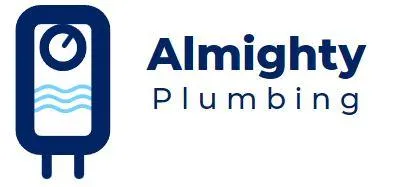How to Choose a Water Heater in Raleigh: Ultimate Guide
if you're selecting a water heater for your Raleigh home, the wide array of choices can often feel overwhelming. With options ranging from traditional storage tanks to tankless models and even solar units, it's essential to consider various factors such as energy efficiency and your household's hot water consumption. Fortunately, our comprehensive guide is here to help simplify the decision-making process, providing you with the knowledge necessary to make a confident choice for your family. In our guide, we will delve into the advantages and disadvantages of each type of water heater, empowering you to make an informed decision. By exploring the unique features and benefits of storage tanks, tankless models, and solar units, you'll gain valuable insights that will aid you in selecting the perfect water heater for your home. From energy efficiency considerations to understanding your household's hot water requirements, our guide covers it all. So, whether you're looking to upgrade your current water heater or install a new one, our guide will equip you with the information you need to make a smart and well-informed decision. Continue reading to discover the insights necessary for choosing the right water heater for your home.

What to consider when buying a water heater
When in the market for a water heater, there are several factors to consider before making a purchase. These considerations can greatly impact the efficiency, longevity, and overall satisfaction you experience with your water heater. Here are some important factors to keep in mind when buying a water heater:
Fuel Type: There are different fuel options available for water heaters, including natural gas, propane, electric, and solar. Each fuel type comes with its own advantages and disadvantages. Consider the availability, cost, and environmental impact of the fuel when making your decision.
Energy Efficiency: Water heating can contribute significantly to your monthly energy bills. Therefore, it is important to choose an energy-efficient water heater that can help you minimize costs. Look for models with a high energy efficiency rating and consider features like insulation to reduce heat loss.
Tank or Tankless: Traditional tank water heaters store and continuously heat a large amount of water, while tankless models heat water on-demand. Tankless water heaters are more efficient as they only heat water when needed, but they might not be suitable for households with high hot water demands. Consider your specific usage patterns and hot water needs before deciding between a tank or tankless system.
Size and Capacity: It is essential to select the right size and capacity for your water heater based on the needs of your household. A unit that is too small can result in insufficient hot water, while an oversized unit may lead to unnecessary energy consumption. Take into account the number of occupants in your home, daily water usage, and peak demand periods to determine the ideal size and capacity.
Installation and Maintenance: Consider the ease of installation and ongoing maintenance when choosing a water heater. Some models may require professional installation, while others can be installed as a DIY project. Additionally, check for warranties and availability of replacement parts to ensure long-term reliability and ease of maintenance.
Cost: The upfront cost of a water heater is an important consideration for most buyers. Assess your budget and compare the prices of different models while keeping in mind the potential long-term savings in energy costs and maintenance expenses.

By carefully evaluating these factors, you can make an informed decision and select a water heater that meets your specific needs, provides adequate hot water, and delivers optimal energy efficiency.
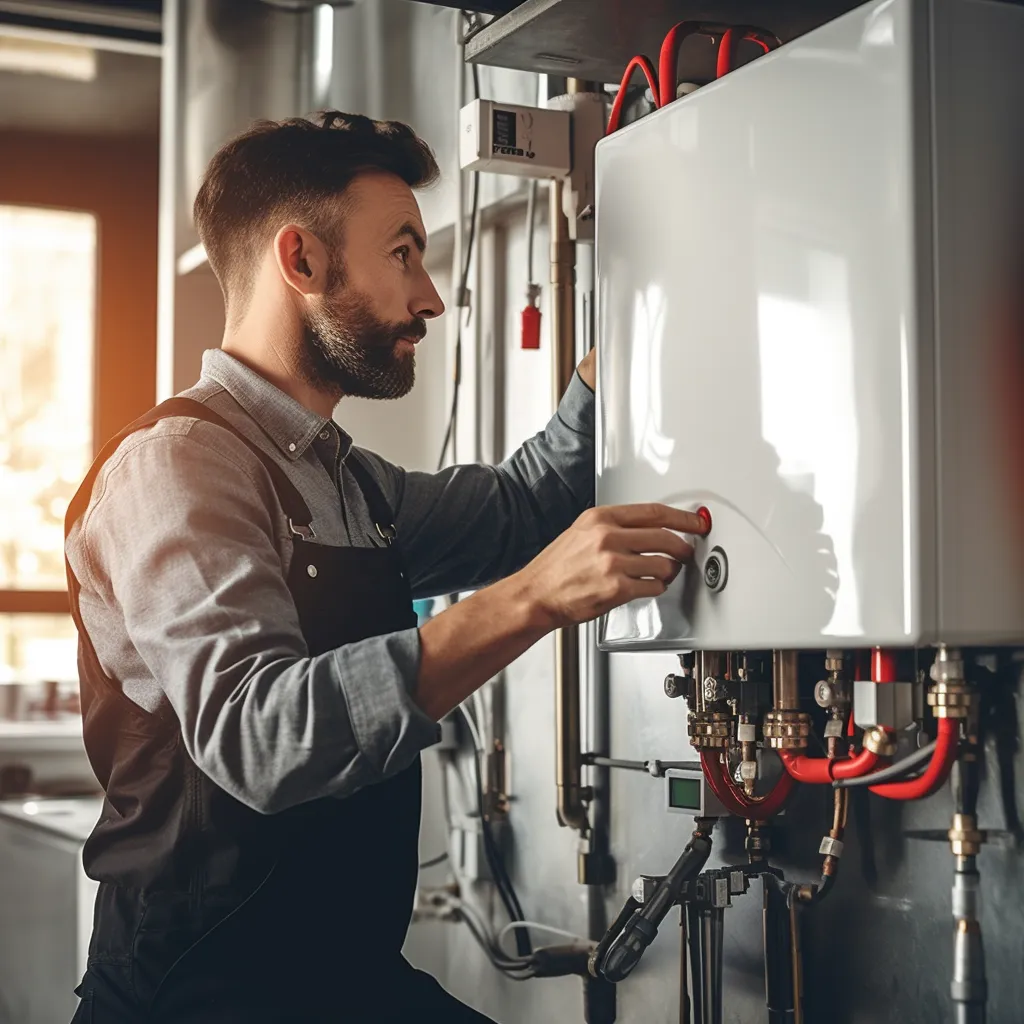
Decide on a budget for a new water heater
When considering the purchase of a new water heater, it is crucial to establish a budget that aligns with your financial capabilities and requirements. Setting a budget will help you narrow down your options and make a more informed decision when selecting a water heater that suits your needs. To determine your budget, start by assessing your financial situation.
Consider how much you are willing and able to spend on a new water heater. It is important to strike a balance between affordability and quality, ensuring that you get the best value for your money. Next, take into account the various factors that can influence the cost of a water heater. These factors include the type of water heater you choose (e.g., tankless, storage tank, heat pump), its capacity, energy efficiency rating, and any additional features you may desire. Each type of water heater will have its own price range, so it is essential to research and compare prices to make an informed decision.
While it may be tempting to skimp on expenses when purchasing a water heater, it is important to consider the long-term costs. Energy-efficient models may have a higher upfront cost but can lead to significant savings on energy bills over time. Additionally, investing in a reliable and durable water heater can help you avoid expensive repairs or replacements in the future. Once you have determined a budget range, it is recommended to consult with professionals or do thorough research to estimate the cost of different water heater models that meet your criteria. This will help you prioritize your needs and make a well-informed decision that fits within your budget.
Research the different types of water heaters
When it comes to selecting the right water heater for your home, the task can be quite daunting given the myriad of options available in the market. However, taking the time to conduct comprehensive research and explore the various types can equip you with the knowledge required to make a well-informed decision.
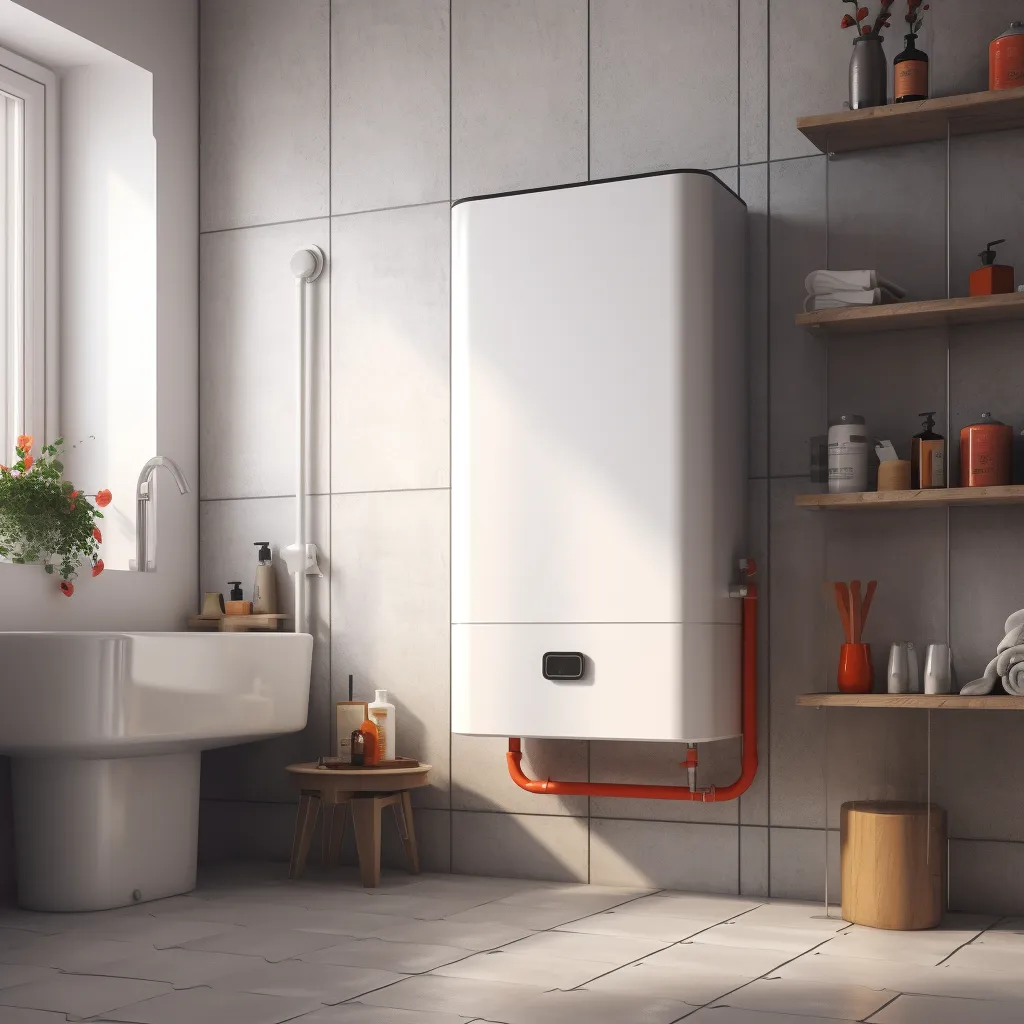
There are several common types of water heaters to choose from, each with its own set of advantages and disadvantages. Let's take a closer look at these options:
Conventional storage water heaters: Advantages: Conventional storage water heaters are widely available and relatively affordable. They can store and heat large amounts of water, ensuring a continuous supply for multiple household needs. Disadvantages: These heaters can be energy inefficient as they continuously heat the stored water, even when it's not being used. Additionally, they have a limited capacity and may run out of hot water during peak usage times.
Tankless water heaters: Advantages: Tankless water heaters are compact and space-saving. They only heat water on-demand, resulting in energy savings and lower utility bills. They provide a continuous supply of hot water and can last longer than conventional heaters. Disadvantages: Tankless water heaters typically have a higher upfront cost compared to conventional heaters. They may also have limitations in meeting the hot water demands of multiple appliances simultaneously.
Heat pump water heaters: Advantages: Heat pump water heaters are extremely energy efficient, as they extract heat from the air and use it to heat the water. This results in significant savings on energy bills. They are also environmentally friendly as they produce lower greenhouse gas emissions. Disadvantages: Heat pump water heaters may require more installation space due to their larger size. They are also less effective in colder climates.
Solar water heaters: Advantages: Solar water heaters utilize renewable energy from the sun, making them highly energy efficient and environmentally friendly. Over time, they can compensate for their initial high cost through lower energy bills. Disadvantages: Solar water heaters are dependent on sunlight, so they may be less effective during cloudy or colder periods. They also require sufficient installation space and proper positioning for optimal performance.
Smart water heaters are a highly upgraded option for those seeking advanced features and enhanced control over their hot water supply. Equipped with features such as remote temperature control, energy monitoring, and scheduling capabilities, these intelligent appliances offer a superior level of convenience and efficiency.
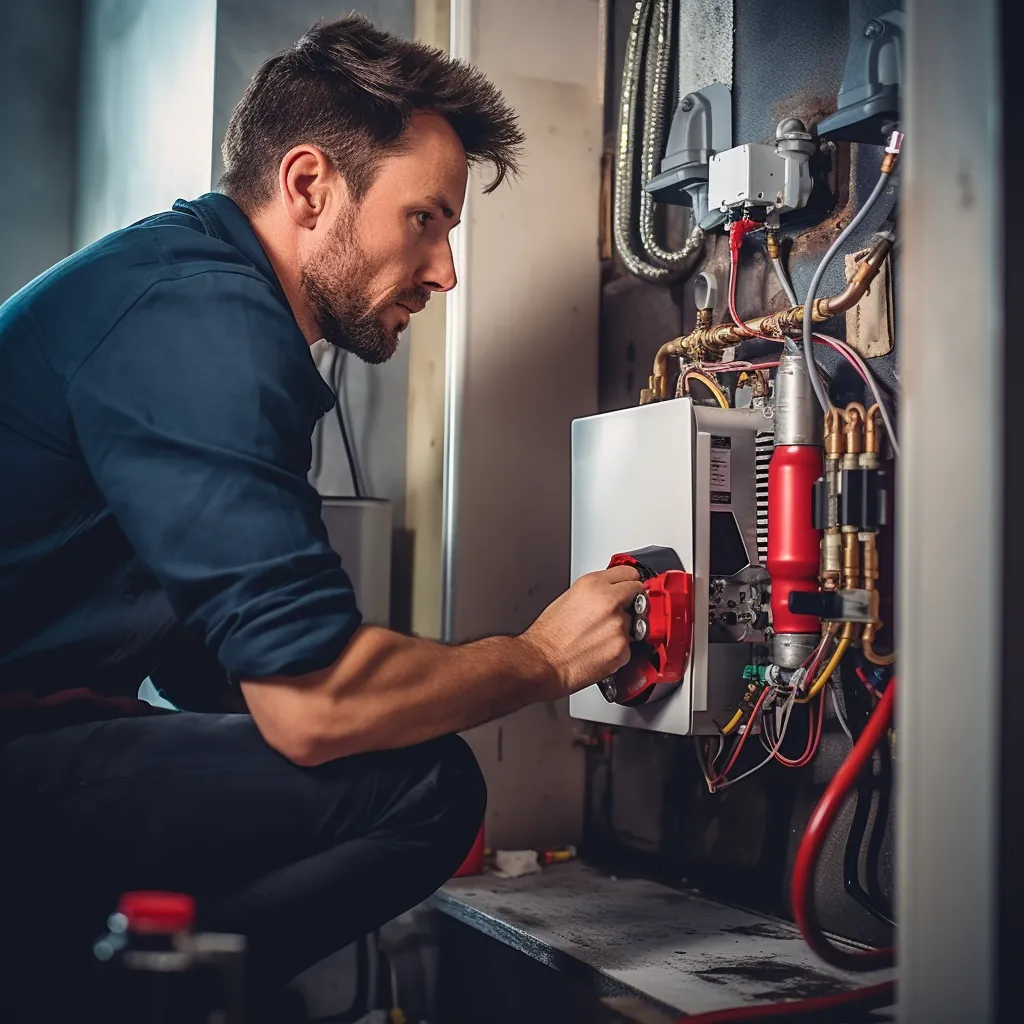
By understanding the advantages and disadvantages of each type of water heater, you can make an informed decision based on your specific needs and preferences.
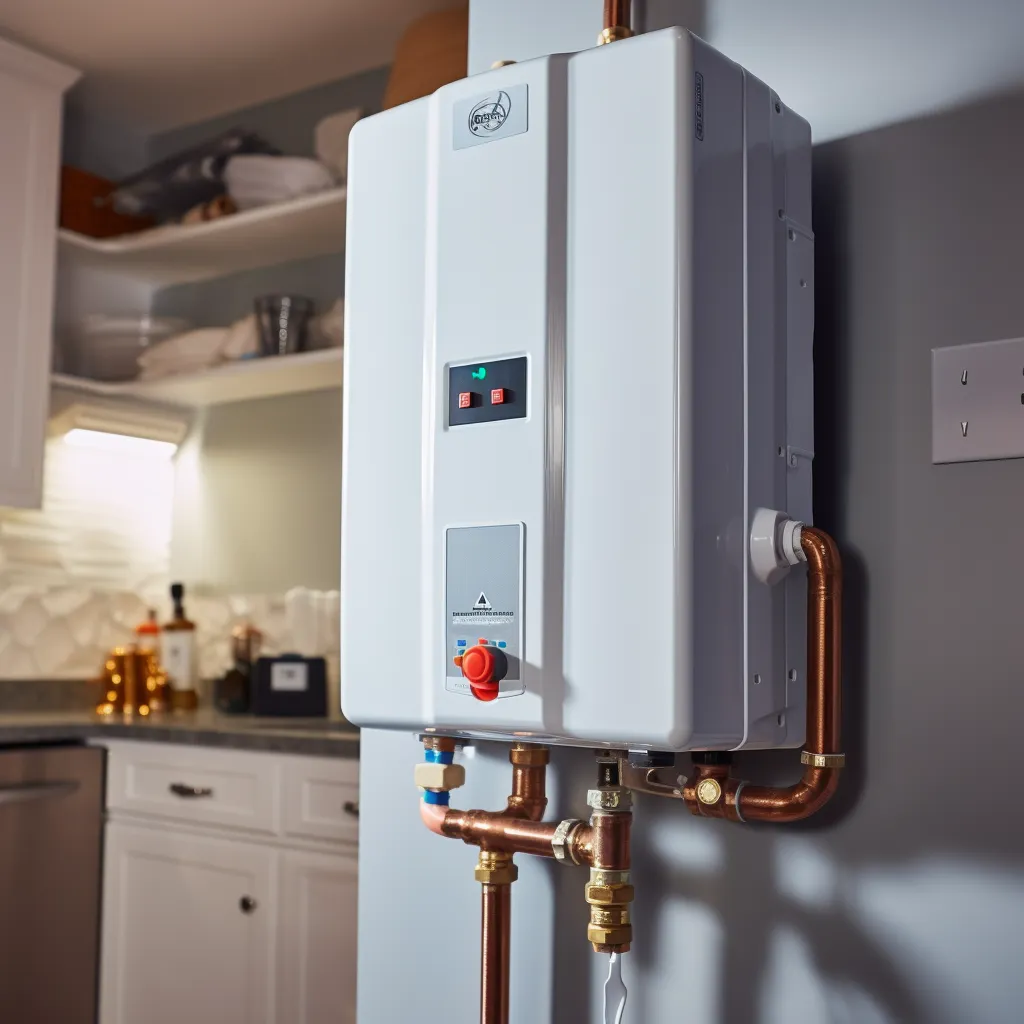
Compare water heater energy efficiency ratings
When choosing a water heater, it's essential to take into account its energy efficiency rating. This rating indicates the amount of energy the heater uses to heat water, with higher ratings suggesting more efficiency and lower energy consumption. By selecting a highly energy-efficient water heater, you can save a considerable amount on your utility bills and contribute to environmental sustainability. To make an informed decision that suits your requirements, it's advisable to conduct thorough research and compare various types of water heaters, including tankless and tank models.
The cost of installation and maintenance
It's crucial to consider both the installation costs and ongoing maintenance needs for each type available. Making an informed decision based on these factors will ensure that you choose the best water heater for your needs:
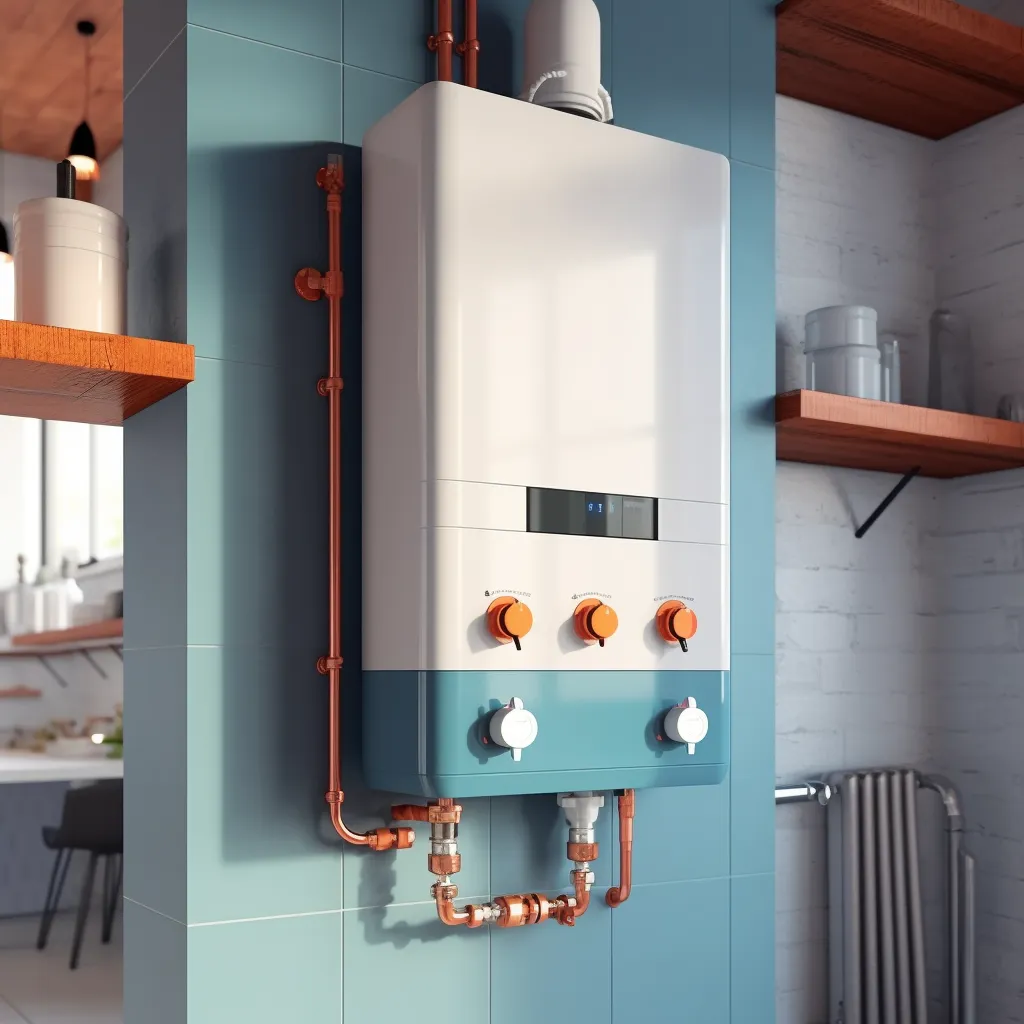
With tankless water heaters, it is highly recommended to have them professionally installed and to schedule annual checks by experts. These precautions are essential in order to ensure the proper functionality of your tankless water heater. Annual checks by experts are also crucial to maintain the efficient operation of your tankless water heater. Experts have the knowledge and expertise to thoroughly inspect the unit, identify any potential issues, and provide necessary maintenance or repairs.
Traditional storage tank heaters often necessitate regular maintenance, such as the replacement of the anode rod or the removal of sediment buildup. These maintenance tasks can be performed by homeowners themselves or by trained professionals. By addressing these routine maintenance tasks, the longevity and efficiency of the heater can be preserved.
Professional installation and periodic servicing or repairs are essential for the efficient operation of solar and heat pump water heaters. These innovative systems offer numerous benefits but often require specialized knowledge and expertise during installation. Hiring a professional ensures that the water heater is installed correctly and that all components are in proper working order.
If you're considering the purchase of a smart water heater, it is important to note that many of these units typically offer installation, repair, and maintenance warranties. However, it is highly recommended that potential buyers thoroughly review the terms and conditions associated with these warranties prior to making a final decision.
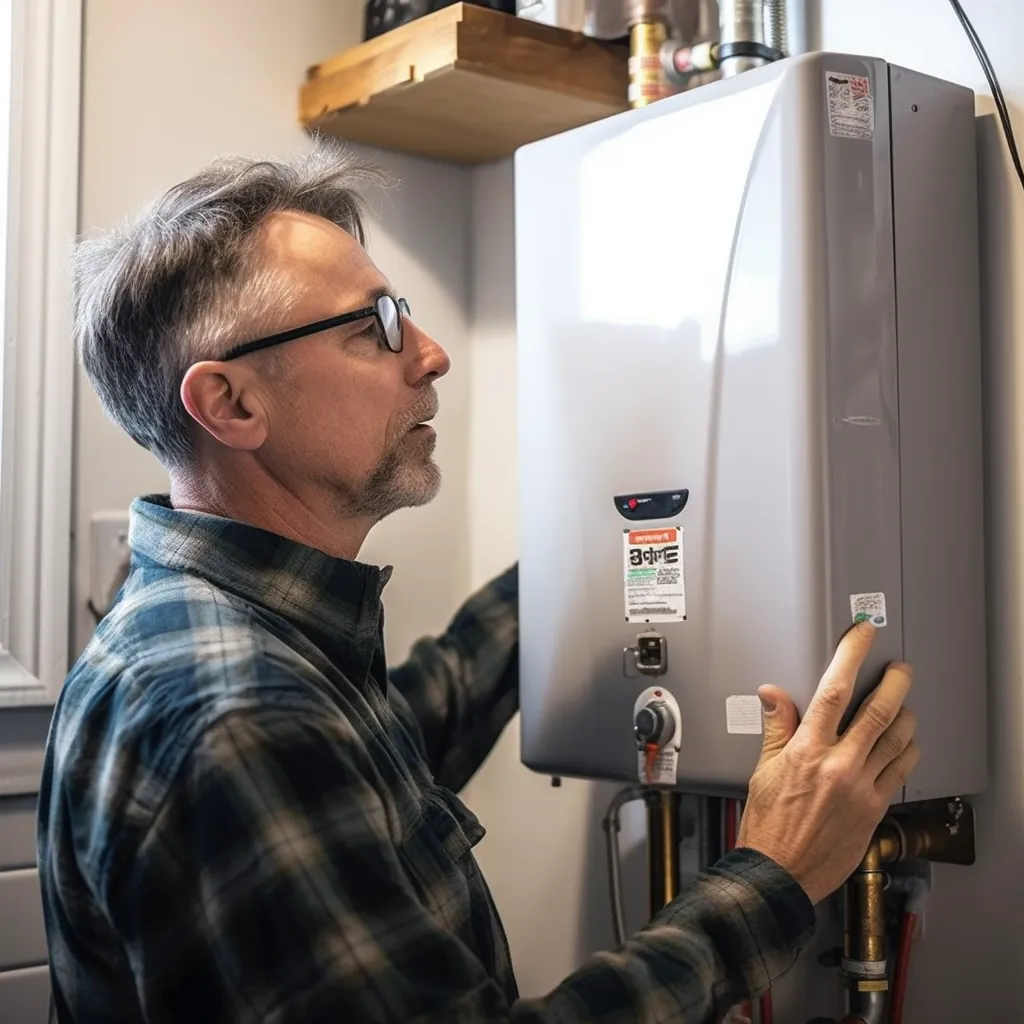
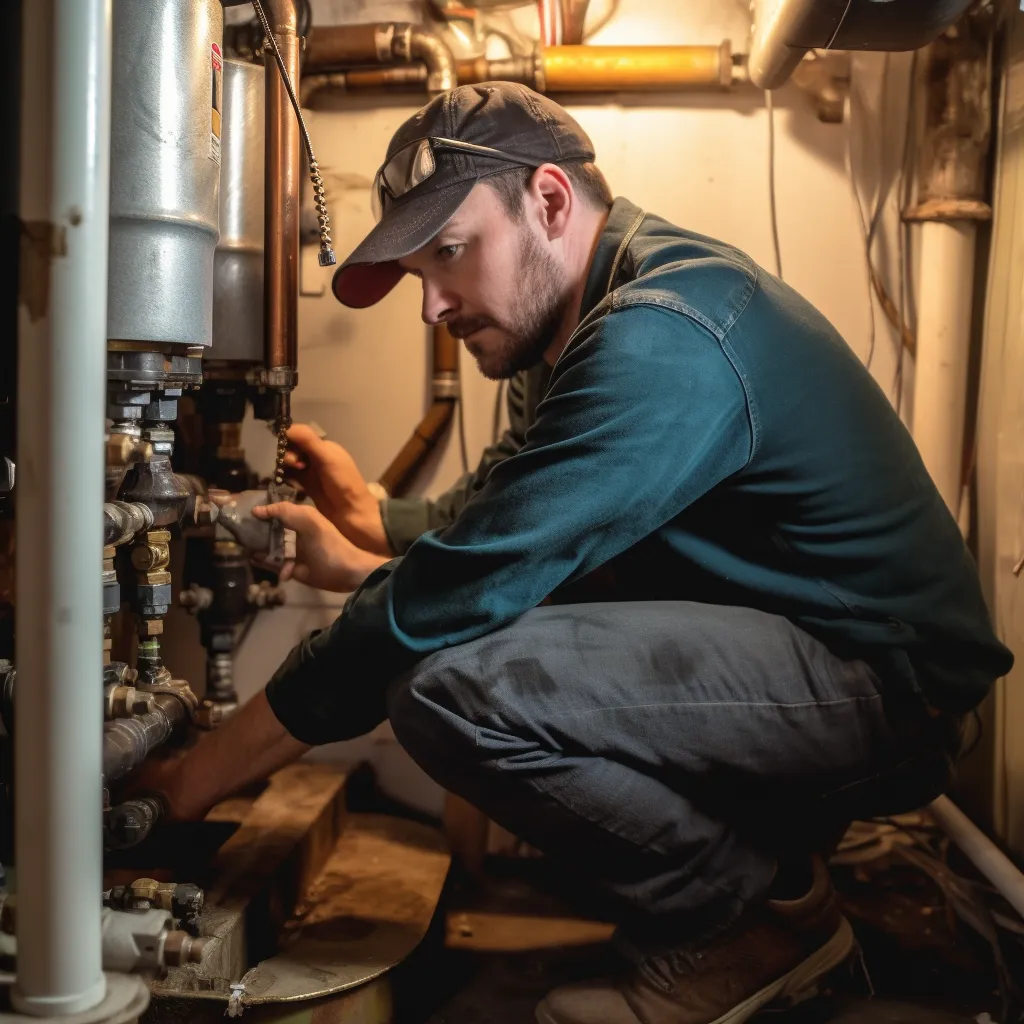
Review warranties and safety features for each type of water heater
When choosing a water heater, it is important to carefully consider the warranties and safety features it offers. Warranties are essential as they provide protection against any possible malfunctions or defects. By selecting a water heater with a comprehensive warranty, you can have peace of mind knowing that you are covered in case any issues arise. Safety should also be a top priority when selecting a water heater. Look for models that come equipped with temperature control features, automatic shutoff functionality, and safety valves. These features help prevent accidents and injuries by regulating the temperature of the water and shutting off the unit when necessary. To find the right water heater for your specific needs, it is essential to conduct thorough research. Compare different models and brands, taking into consideration the warranties and safety features they offer. By selecting a water heater with robust warranties and reliable safety features, you can ensure both the longevity and safety of your appliance.
Why it's important to hire a licensed expert to install your water heater
Many homeowners may be tempted to tackle the job of installing a water heater by themselves or hire an unlicensed handyman to save money. However, it's important to understand the risks and benefits of hiring a licensed expert for this task:
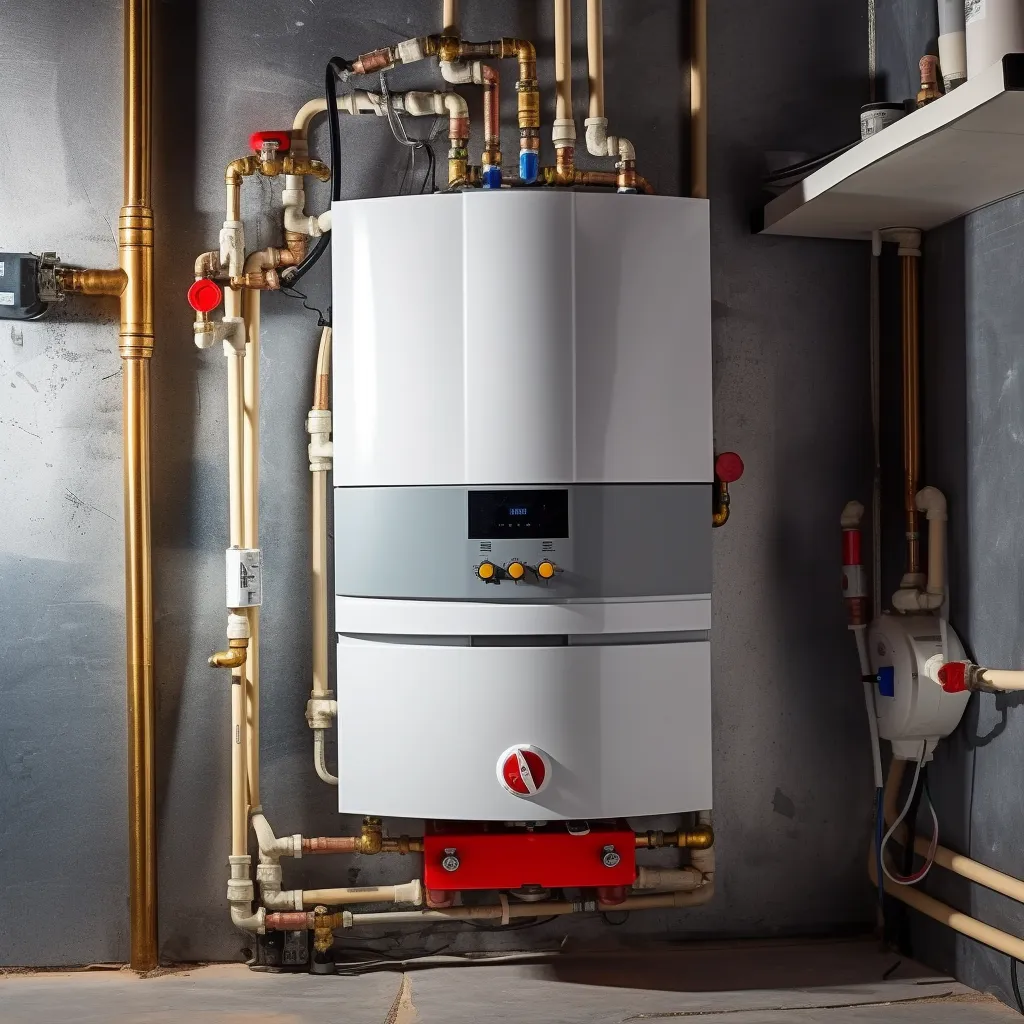
First and foremost, a licensed expert possesses the necessary knowledge and expertise to handle the installation process. They have undergone extensive training and are well-versed in the specific requirements and codes governing water heater installations. This ensures that the installation will be done correctly and safely, minimizing the risk of any potential hazards.
Hiring a licensed expert provides you with peace of mind. You can rest assured that the professional working on your water heater has the proper credentials and experience to get the job done right. They have likely installed countless water heaters and are familiar with the various types and models available. This expertise allows them to offer sound advice and recommendations based on your specific needs.
Hiring a licensed expert can save you time and money in the long run. While it may seem like a cost-effective option to do it yourself or hire an unlicensed handyman, any mistakes or errors during the installation process can lead to significant expenses down the line. This could include repairs, replacements, or increased energy costs due to an inefficient installation.
Working with a licensed expert ensures that your warranty remains valid. Most manufacturers require professional installation to uphold their warranty terms. By hiring an expert, you can avoid any potential issues that may arise if you were to install the water heater yourself or use an unlicensed service provider.
Hiring a licensed expert can benefit you in terms of insurance coverage. If a water heater installation is not done to code or results in damage to your property, insurance companies may deny a claim. By working with a licensed expert, you have a greater chance of obtaining coverage and protecting your investment.
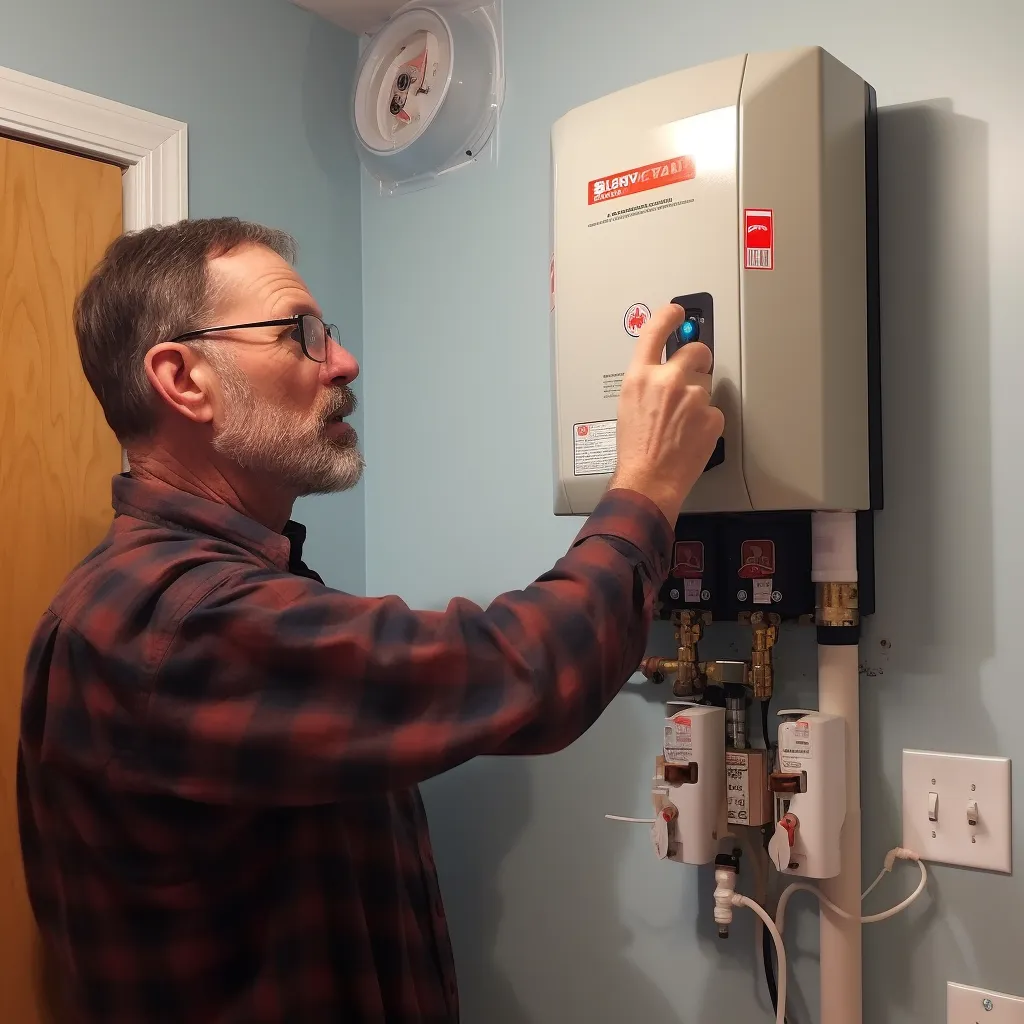
Factors to consider when hiring a licensed water heater professional
When it comes to hiring a licensed water heater professional, there are several key factors that you should consider. Not only do you want to ensure that you are getting the best possible service and expertise, but hiring a licensed professional also guarantees that the work is being done safely and according to industry standards.
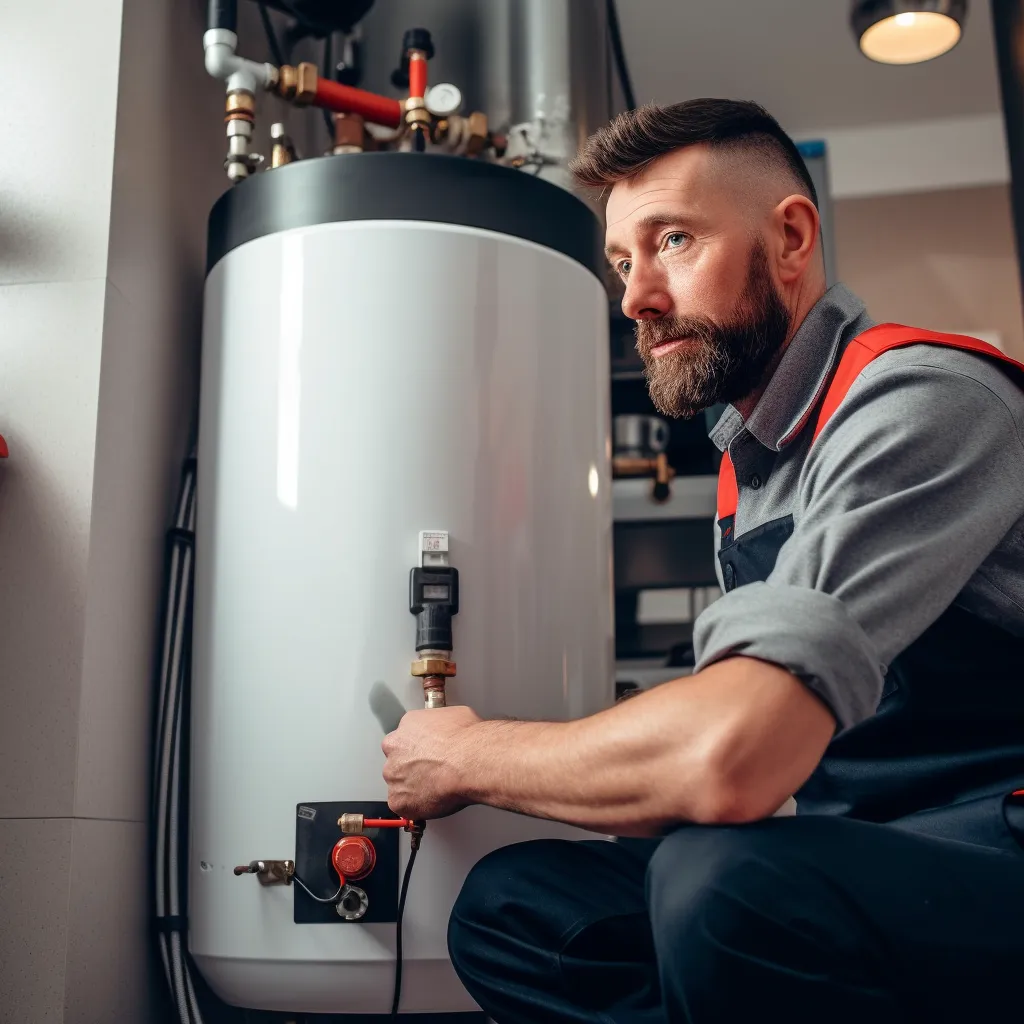
One of the most important things to look for when hiring a water heater professional is their license and certifications. Make sure that they are properly licensed by the appropriate governing body in your area. This shows that they have met the necessary requirements and have the knowledge and skills to perform the job correctly.
Experience is also a crucial factor to consider. Look for a professional who has extensive experience working with water heaters. This will ensure that they are familiar with different types of water heaters and can efficiently troubleshoot any problems that may arise during the installation, repair, or maintenance process.
It is essential to consider the reputation of the professional or the company. Look for reviews and testimonials from previous clients to get an idea of their level of customer satisfaction. A reputable professional will have positive feedback and a track record of delivering high-quality service.
Another important factor to consider is the cost of the service. While it is essential to find a professional who fits within your budget, be cautious of extremely low prices as they may indicate poor quality work or the use of substandard materials. Get quotes from multiple professionals to compare prices, but remember that quality should be a priority over cost.
Finally, consider the warranty and guarantees offered by the professional. A reputable water heater professional will usually stand behind their work and offer warranties on their services and the parts they install. This provides you with peace of mind knowing that if any issues arise after the job is done, they will be addressed at no additional cost.
Do thorough research
Choosing the appropriate water heater is crucial if you want reliable access to hot water and lower energy bills. It's important to explore the various options available, including tankless, solar, and traditional storage tank water heaters. Moreover, you should take into account several factors when making your decision, such as energy efficiency, installation costs, warranties, maintenance requirements, and safety features. Opting for an energy-efficient water heater can significantly reduce your energy consumption and, as a result, your energy costs. This can be particularly important in the long run. Additionally, it's worth considering the upfront installation costs and comparing them with the potential savings over time. When it comes to warranties, be sure to examine what each manufacturer has to offer. Longer warranties can provide you with greater peace of mind and protection against any unexpected issues. Similarly, you should be aware of the maintenance requirements for the water heater you choose. Some models may require more frequent maintenance, so it's essential to factor in these upkeep expenses when making your decision. Lastly, safety features should not be overlooked. Water heaters can be potential fire hazards if not properly installed or maintained. Consequently, you should prioritize models that have superior safety features to ensure the well-being of your household. It is wise to consult a licensed professional who is knowledgeable about different water heater types, utility programs, and building codes. Their expertise can help ensure the successful installation and optimal performance of your chosen water heater. By carefully considering these steps when selecting a water heater, you can enjoy a durable and efficient system that meets your hot water needs while minimizing energy costs.
Contact Us
GET IN FULL TOUCH
PHONE: (984) 223-8754
EMAIL:
david@waterheatersinraleigh.com
Almighty Plumbing
Raleigh, NC 27602
